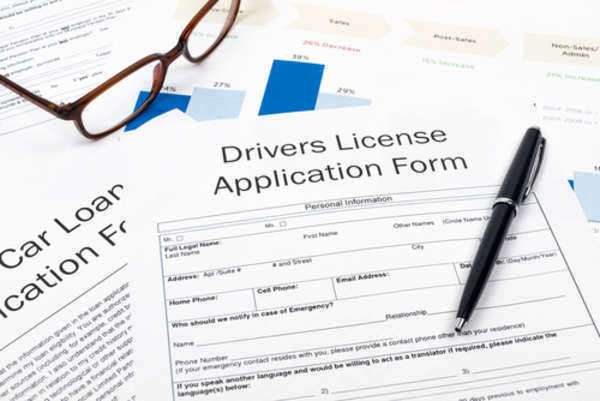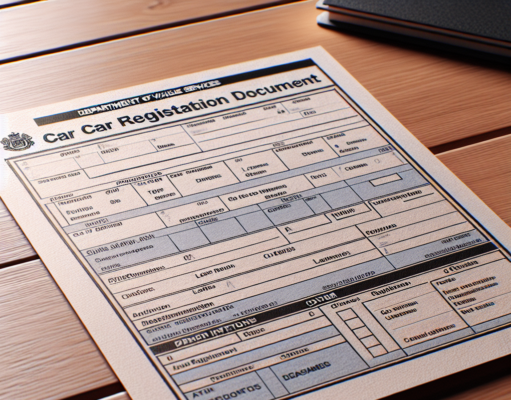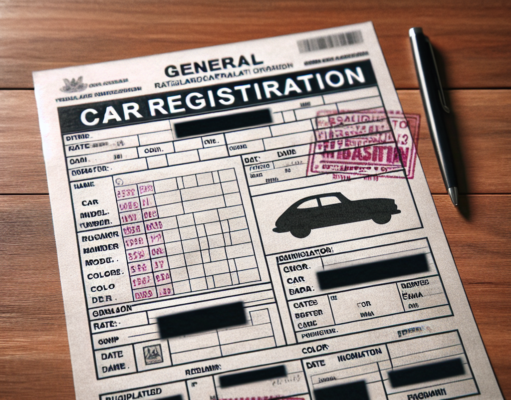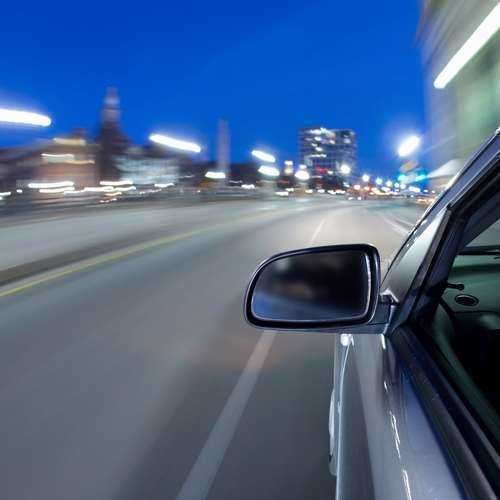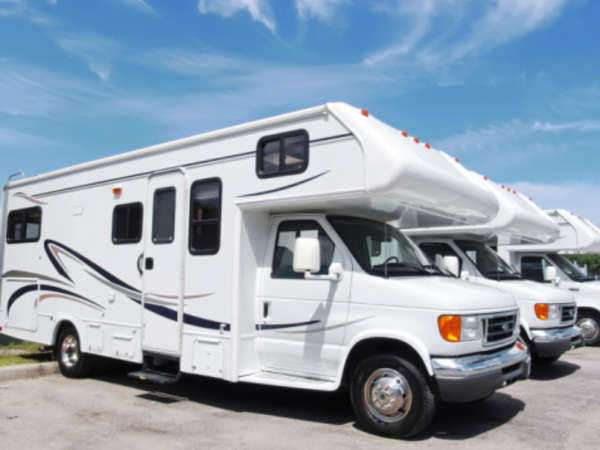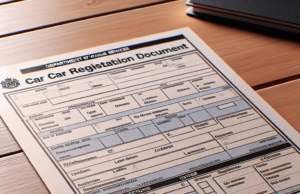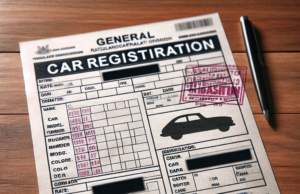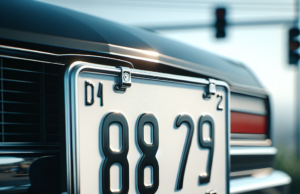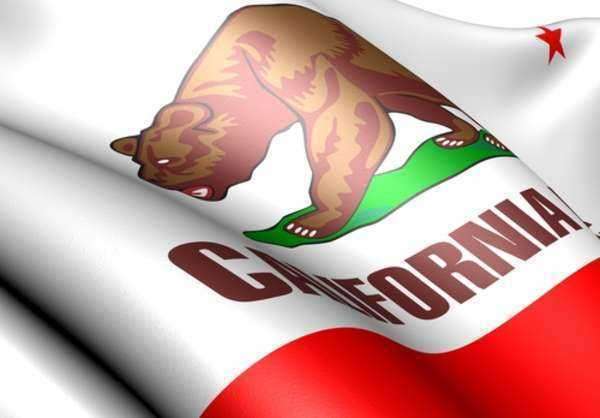
Understanding CA DMV Registration
A California DMV registration is done in order to show proof of having paid the fees and taxes involved with registering a motor vehicle in California. A California DMV
registration consists of a new license plate, a validation decal, as well as your registration certificate.
CA DMV Registration: Non-resident Vehicle
A nonresident vehicle is one that was last registered in a state besides California. Any driver who brings a vehicle into the state of California, or buys a nonresident vehicle when in California, should understand the California DMV registration requirements.
In order to register your non-resident vehicle through the CA DMV process, you will need the following documents:
• Form REG 343 Application for Title or Registration: This must be signed by all registered owners of the vehicle as they appear on the out-of-state title and/or registration. Their names and addresses as well as the lien holder should also be included on the application.
• Out-of-State Registration Certificate, a letter from the last jurisdiction or registration that verifies the registration period, or renewal notice for the current year.
• Form REG 343 Verification of Vehicle
• Any applicable fees
Additionally, you may need the following for your CA DMV registration:
• Out-of-State Title: This is not required if no change has been made to the registered owners there is no request for a California title. If the out-of-state title of the vehicle is not surrendered, the new California registration
card issued will state that it is nontransferable and the DMV will not issue a California title.
• Form REG 262 Vehicle/Vessel Transfer & Reassignment Form – Bill of Sale, Odometer Disclosure, & Power of Attorney.
• Form REG 166 Lien Satisfied Statement
• Form REG 4008 Declaration of Gross Vehicle and Combined Gross Vehicle Weight for commercial motor vehicles.
• Form REG 4017 Permanent Trailer Identification Application/Certification.
• Form REG 256 Statement of Facts
• Weight Certificate
• Smog Certification
In accordance to the rules of CA DMV Registration, the vehicle must also be inspected by an authorized Department of Motor Vehicles employee, licensed vehicle verifier, or a law enforcement officer. These vehicle inspections are very easily obtained by bringing the motor vehicle to a local DMV without any charge.
If you need to complete a change of ownership, you will also need the following:
• The last issued out-of-state title, which should be signed by the lien holder (if there are any) and the seller. If you are not in possession of the title, you must request a duplicate.
• Form REG 262 Vehicle/Vessel Transfer & Reassignment Form, if the seller is not the registered vehicle owner.
• Form REG 262 or the odometer disclosure on the title if the vehicle is less than ten years old, signed by the buyer and seller.
• Form REG 166 a Notarized Lien Satisfied/Title Holder Release or a release of interest of the appropriate line of the title from the lien holder if the only change is the removal of the lien holder.
Fees for CA DMV Registration
Fees for a CA DMV registration have to be paid within twenty days of residency or entry to avoid any penalties. Any motor vehicles owned by a California resident have to be registered within twenty days of entry into California, unless the owner obtains a special permit. Nonresidents of California whose vehicles are registered properly to them from their home jurisdiction or state can operate their vehicles in California until they:
• Lease or rent a residence in the State of California.
• Claim a homeowner’s exemption in the State of California.
• Accept gainful employment in the state of California.
• Intend to be located or live in California on a permanent basis.
• Enroll dependents in a K-12 school.
• Enroll in a higher learning institution as a California resident.
The amount of fees depends on many different factors. A total amount for your CA DMV registration can only be determined once you submit your application. For an estimate of what you should expect, you can use the Vehicle Registration Fee Calculator, provided online. The different fees that can be collected during your California DMV registration include the following:
• Registration Fees which are collected on most on-highway vehicles in order to offset the Department of Motor Vehicles costs.
• Reflectorized License Plate Fee which is collected to cover the costs of license plate issuance.
• California Highway Patrol Fee which is collected to offset the costs of the California Highway Patrol.
• County Fees which vary by county. These fees are collected at the request of the specific county of residence for various special programs.
• Vehicle License Fee is based on the value of your motor vehicle as stated in the Bill of Sale or Certificate of Cost. Nonresident military personnel who are stationed in California and Disabled Veterans can apply for military
exemptions from the VLF fee on any vehicles that they register in California.
• Permanent Trailer Identification Original Fees are applicable to any trailers, except park trailers and trailer coaches, under the PTI program. Permanent trailer identification trailers are not subject to CHP, registration, county,
or vehicle license fees. Permanent trailer identification trailers must pay an original fee along with a service fee every 5 years for renewal.
• Weight Fees are assessed on pickups that have an unladen weight of up to 8,000 pounds, along with commercial motor vehicles with operating weight under 10,001 pounds. These weight fees are based on the unladen or
empty weight.
• Commercial Vehicle Registration Act Fees are assessed on commercial motor vehicles that have an operating weight of 10,001 pounds or more. These include pickups that have an unladen weight of 8,001 pounds or more. The Commercial Vehicle Registration Act fee is based on the vehicle’s gross vehicle weight or its combined gross vehicle weight. Tow trucks that are used to help the motoring public to carry or tow impounded vehicles are also
subject to Commercial Vehicle Registration Act fees. The declared weight of a tow truck is based on the vehicle’s gross vehicle weight rating, not its combined gross vehicle weight.
• Cargo Theft Interdiction Program Fees are fees placed on commercial motor vehicles that operate at 10,001 pounds or more. These fees are not applied to tow trucks, pickups, or any vehicles for hire that are only to
transport people. Cargo Theft Interdiction Program Fees are used by the California Highway Patrol to promote security for commercially registered vehicles and recover stolen cargo.
• Use Tax is collected at the same rate as the specific California city of residence sales tax. California requires the payment of use tax on any vehicles purchased outside of California and brought into the state within 365 days
of the vehicle’s purchase date.
• Nonresident Service Fees are collected on motor vehicles and vessels excluding Special Equipment and PTI trailers.
• Penalties can be assessed when certain fees for nonresident vehicles are not paid within twenty days of the date that they are due. Permanent trailer identification trailers are only assessed the late use tax penalties.
